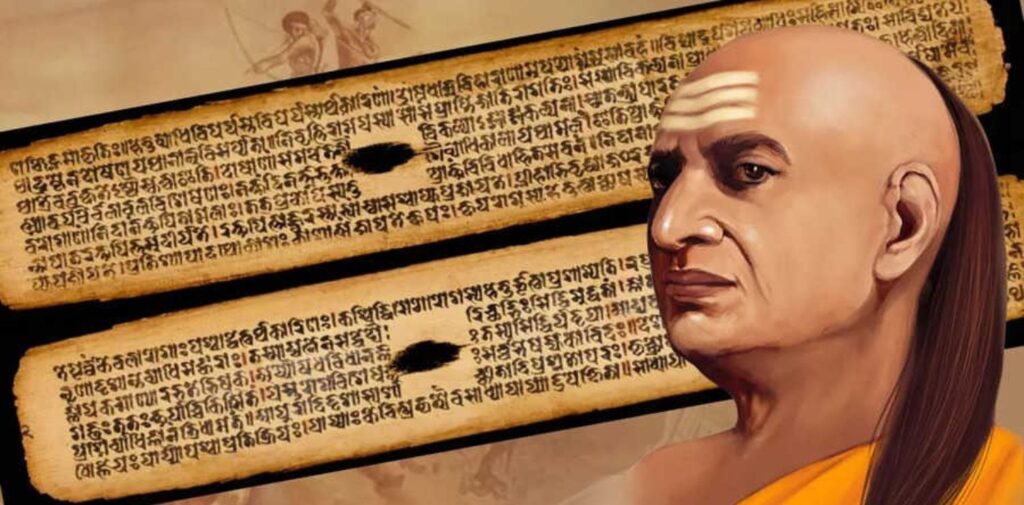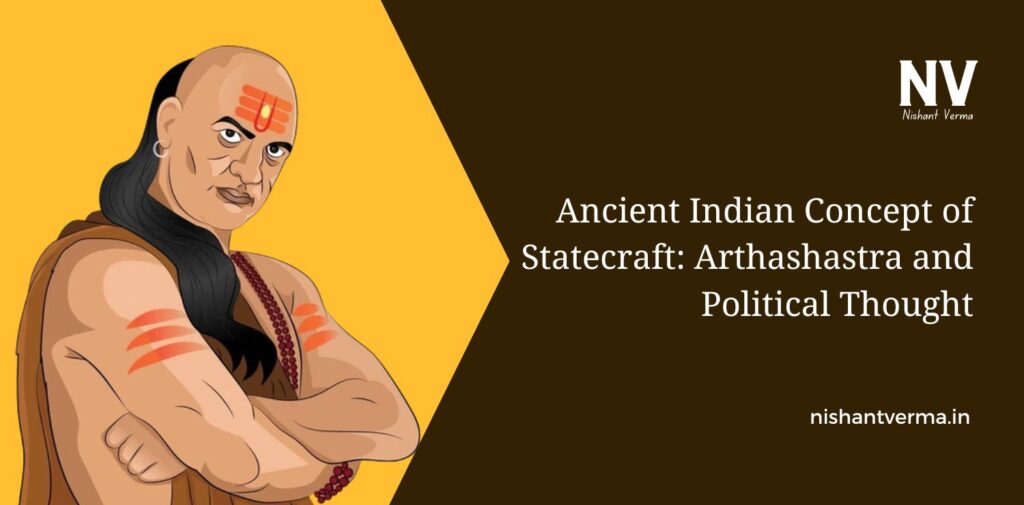India has a rich history when it comes to knowledge, philosophy, and governance. One of the most important works that shaped the idea of how a state or government should function in ancient India is called the Arthashastra. This text is one of the oldest and most important books on politics, economics, and statecraft in Indian history. It provides us with valuable insights into how ancient Indian rulers were advised to run their kingdoms, make decisions, and take care of their people. In this article, we will explore the Arthashastra and its teachings in a way that anyone, even a young reader, can understand.
What is the Arthashastra?
The Arthashastra is an ancient Indian treatise (a detailed book or written work) that talks about statecraft, politics, economics, military strategy, and governance. It was written by Chanakya, also known as Kautilya, who was a great scholar, teacher, and advisor to the Mauryan Emperor Chandragupta Maurya. The book is filled with advice on how a ruler should act, what kind of laws should be made, how to manage a kingdom, and how to maintain peace and order in society.
The word “Artha” means wealth or material prosperity, and “Shastra” means science or knowledge. So, Arthashastra literally translates to “the science of wealth” or “the science of governance.” It is not just about managing money, but about how to create a strong and prosperous state, and how to maintain the well-being of its citizens.

Who Was Chanakya?
Before we dive into the content of the Arthashastra, it is important to know a little about its author, Chanakya (also called Kautilya). Chanakya was a wise teacher and a clever strategist. He lived around 350-275 BCE and was a key figure in the rise of the Maurya Empire. He played a major role in helping Chandragupta Maurya become the king of India and set up a strong and powerful empire.
Chanakya was known for his intelligence, sharp mind, and deep knowledge of politics and governance. He wrote the Arthashastra as a guide to help kings and rulers rule their kingdoms wisely and efficiently. He is also famous for his teachings on how to deal with enemies, how to manage power, and how to create a just society.
The Importance of the Arthashastra
The Arthashastra is considered one of the most important books on politics in the world. It gives us a glimpse into the thinking and approach of ancient Indian rulers and scholars regarding governance and leadership. The book is not just about politics, but also includes ideas about law, economics, and military strategies. Here are some of the main teachings of the Arthashastra:
The Role of the King
In the Arthashastra, the king (or ruler) is seen as the protector of his people and the central figure in the state. The king’s main duty is to ensure the safety, happiness, and prosperity of his citizens. According to Chanakya, a good ruler should be wise, knowledgeable, and just. He should be fair in his judgments and always keep the welfare of the people in mind.
The king must also work towards maintaining law and order and should make sure that the resources of the kingdom are used wisely for the benefit of the people. If the king is just and responsible, his people will support him and the kingdom will thrive.
The Importance of a Strong Economy
One of the major ideas in the Arthashastra is the importance of a strong and healthy economy. According to Chanakya, a ruler should focus on developing the economy of the state because a rich and prosperous kingdom can provide for the needs of its people.
In the Arthashastra, Chanakya talks about the role of trade, taxation, agriculture, and industries in building a strong economy. The state should take care of its natural resources, control trade routes, and make sure that there are fair laws to protect businesses and industries.
Chanakya also emphasizes the need for collecting taxes in a way that does not burden the people. He believed that a ruler should ensure that the people are prosperous and not heavily taxed, while still collecting enough money to run the state.

Justice and the Rule of Law
Another important concept in the Arthashastra is the idea of justice. The Arthashastra teaches that the king must create laws that protect his people and make sure that justice is delivered fairly. There should be no corruption, and everyone should be treated equally under the law, no matter their status.
The book explains that a ruler must set up a good system of courts and judges to resolve disputes and punish criminals. It is important that the law is clear, and the process of justice is transparent and fair. This ensures that the people feel safe and trust their government.
Espionage and Intelligence
One of the most interesting parts of the Arthashastra is its advice on espionage (spying) and intelligence. Chanakya believed that a ruler should always know what is happening in his kingdom, even if it is hidden from the public. The king should have spies who collect information about what is going on in the kingdom, what the people are saying, and what the enemies are planning.
According to Chanakya, information is power. A king should always be prepared and should use intelligence to make informed decisions. In fact, Chanakya suggests that a wise ruler should know about the activities of his ministers, his citizens, and his enemies at all times.
Diplomacy and Foreign Relations
The Arthashastra also talks about the importance of diplomacy and how a ruler should handle relations with other kingdoms. According to Chanakya, a ruler must be strategic and careful when dealing with foreign nations. Sometimes, diplomacy and alliances are the best way to ensure the safety and growth of the kingdom.
Chanakya advises that a ruler should have different approaches to different countries. Sometimes, alliances with friendly kingdoms are necessary, while in other cases, it may be necessary to use force. Diplomacy is about finding the right balance between peace and war, and a good ruler should always choose the best path for the welfare of his kingdom.
Military Strategy
The Arthashastra also has a detailed discussion on military strategy. Chanakya believed that a ruler must be ready for war if necessary. The king should maintain a strong and well-trained army. Chanakya gives advice on how to organize the army, how to train soldiers, and how to wage war effectively. He also talks about the importance of fortifications (strong walls around cities) to protect the kingdom from attacks.
However, Chanakya also stresses that war should only be a last resort. A ruler should try to resolve conflicts through peaceful means whenever possible, but if war becomes unavoidable, the king must be prepared to fight strategically and decisively.

The Welfare of the People
Finally, one of the key ideas in the Arthashastra is that the ruler should always think about the welfare of the people. A good ruler should work to improve the lives of his citizens by providing good governance, good laws, and ensuring their safety. The welfare of the people is the foundation of a successful and stable state.
Conclusion
The Arthashastra by Chanakya is a timeless guide to leadership, statecraft, and governance. It teaches us that a ruler must be wise, just, and strategic. It also emphasizes the importance of law, economy, diplomacy, and military readiness.
Even though it was written thousands of years ago, the ideas and lessons from the Arthashastra are still relevant today. It shows that a good government must care for its people, ensure peace and prosperity, and be smart in handling both internal and external challenges.
By studying the Arthashastra, we can learn about ancient Indian political thought and understand how the rulers of the past worked to build strong, just, and prosperous kingdoms. This ancient text continues to inspire leaders and thinkers around the world even today.




